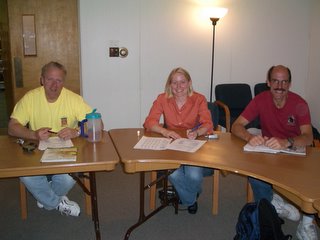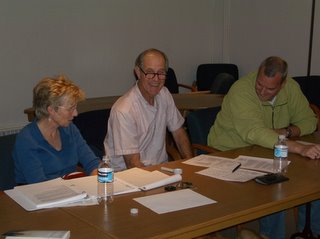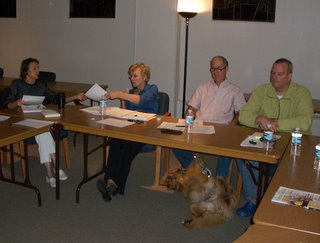Sr Joan Chittister is one of my favorite writers on the spiritual journey. I heard her speak at Trinity Cathedral last summer in Portland. It was one of the highlights of my past year.
These are her reflections on the season of Advent. I hope you glean some "simple wisdom" from what she has to say.
Carolyn
The following article is by Sr Joan Chittister:
It's Advent again. And if anyone cares about Advent, Americans should.
Advent may have more to do with American life than any other season of the year. Yet, Advent remains the period of spiritual preparation that is too often least appreciated, little understood and commonly ignored.
One of the problems with Advent is that it gets swallowed up by Christmas. The truth is, of course, that Advent signals the coming of Christmas. But the kind of Christmas the liturgical period of Advent is meant to signal is not the Christmas we celebrate in the United States. Civil Christmas is about the storing up of things. The Christmas to which Advent points is about being emptied out so we can become full.
Advent is about the spirituality of emptiness, of enough-ness, of stripped-down fullness of soul.
Advent points to the essentials of life; commercial Christmas points to its superfluities.
The two great liturgical seasons of the church year, Advent and Lent, are about very different things. Advent is not "a little Lent." Advent is not a penitential period. Advent comes to trigger consciousness, not to provoke our consciences.
The Talmud teaches that every person should wear a jacket with two pockets. In the one pocket, the rabbis say, there should be a note that reads, "I am a worm and not completely human." And in the second pocket, the rabbis say, the note must read, "For me the universe was made."
The story is clear: The function of Lent is to remind us who we are--and who we are not. The function of Advent, on the other hand, is to remind us who God is and who we are meant to be, as well. Advent is about the riches of emptiness.
The Jesus "who did not cling to being God," but is like us in all things, models what most of us take the greater part of our lives to learn: how to "be ourselves." The divinity who comes to us as an infant is the paradigm of what it means to learn from life as we grow into who and what we're meant to be. The God who comes without retinue or riches is the metaphor of a humility that requires us to remember how really small we are in the universe--and to come to the point where that is enough for us.
Advent is about the power of emptiness and the spiritual meaning of smallness.
When we have little to begin with, we have even less to lose. We know, then, that we don't have all the ideas or all of the answers. It means that we have nothing to fight over and even less to boast about in life. We become full of possibility.
When we know who we really are, when we present no disguises and parade no pretensions, when we are honest both with ourselves and with others, we fired ourselves free to be ourselves. We have no image to keep up, no lies to gild in a gilded society. We become full of integrity.
When we learn to live with the basics rather than to hoard what does not belong to us, we can never be made bereft by the loss of life's little baubles because we never depended on them in the first place. We become full of contentment.
When we recognize our own limitations, we need never fear failure. Then we can't possibly be destroyed by losing because we never anointed ourselves entitled to win. We become full of confidence.
Finally, when Advent seeps into our souls, we come to understand that small is not nothing and empty is not bereft. To be small is to need, to depend on the other. Smallness bonds us to the rest of the human race and frees us from the arrogant isolation that kills both the body and the soul. To be empty is to be available inside to attend to something other than the self. We become full of the blessings of life.
Then, emptied out by the awareness of our own smallness, we may have the heart to identify with those whose emptiness, whose poverty of spirit and paucity of life is involuntary. Then, we may be able to become full human beings ourselves, full of compassion and full of consciousness.
An Advent spent in serious reflection on the power of emptiness and the meaning of smallness puts everything else in perspective. Most of all, ourselves. Or, as Isaiah put it, "The eyes of the arrogant man will be humbled and the pride of men brought low."
Benedictine Sr. Joan Chittister, author and lecturer, lives in Erie, Pa.COPYRIGHT 2003 National Catholic ReporterCOPYRIGHT 2003 Gale Group








